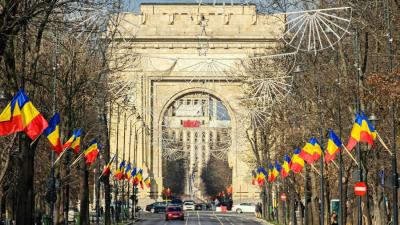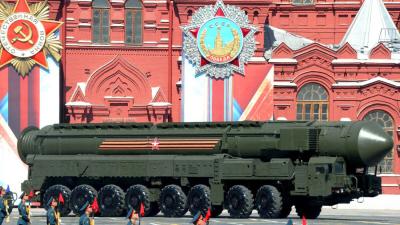Two weeks ago, Alberto Núñez Feijóo saw himself as President and clear winner of the general elections in Spain. The results of the regional and local elections on 28 May, and most polls, predicted a shift to the Right and a change of government.
Feijóo had a debate with Pedro Sánchez, in which he came out considerably better than his rival. However, he ran a campaign where, instead of attacking the socialists and their corruption, he dedicated himself to demonising VOX. He stated time and again that he preferred to make a pact with the socialists than with Abascal’s party. This manoeuvre was aimed at winning votes from the Left, but at the same time it was yet another confirmation that the PP leaders were very comfortable with a progressive ideology, and assumed almost all of its postulates: feminism, gender, climate change… Feijóo also insisted on the “useful vote”, namely, the concentration of all the votes of the Right and of VOX voters for the PP. Due to our electoral system, such a call for a useful vote is sometimes counterproductive, as has been demonstrated again in these elections - because weakening of the party’s ally makes its electoral victory pyrrhic. In the last week of the election campaign, a new debate was organised among the four big parties: PSOE, PP, VOX and Sumar. However, the President of the Partido Popular preferred not to show up, assuming that he had already won the elections and that it was a "losers' debate". Feijóo did not go out to win the elections, he sat on the porch of his house to watch Pedro Sánchez’s political corpse pass by. This mistake has cost him dearly. The Partido Popular has increased its number of deputies by 42, rising to 136 and winning more than 7 million votes, but this is not enough. That is why the image of Feijóo surrounded by his leadership celebrating the victory seems like a bad joke; a joke that hasn’t been found funny by the only PP leader who did not dress in white for the occasion: Isabel Díaz Ayuso.
VOX went from 52 deputies to 33 - more than a third of its representation in Congress, despite the loss of one-sixth of its voters, i.e. more than 600,000. VOX has suffered a tremendous media campaign of demonisation and in favour of the useful vote. This is true, and has been the price for standing up to political correctness. Yet there are worrying details, such as the case of Castilla y León, where VOX has been governing for two years together with the PP, and where only one of the six deputies obtained in 2019 has been retained. Abascal’s party must reflect deeply on what has happened and not fall into complacency or victimhood because serious reflection is more necessary than ever.
What nobody expected were the good results of the Socialist Party. Despite the lies, corruption scandals, unjustified concessions to Morocco and agreements with independence supporters, the Socialists have also won more than 7 million votes and 122 seats, two more than in 2019. On election night, Sánchez exultantly addressed his supporters as they shouted "No pasarán", the cry of the militias during the Spanish Civil War. A large part of the Spanish Left is still anchored in the times of civil war and confrontation, and that is what Pedro Sánchez's PSOE offers. To his Left, Sumar, the coalition of the communist Yolanda Díaz, has managed to recompose the remains of Podemos and won 31 seats, 8 fewer than in 2019, and 700,000 fewer votes. Unlike what the PP has done with VOX, the PSOE media have whitewashed the communists, something that the media linked to the PP have also done. Despite a childish and embarrassing campaign, 3 million Spaniards voted for Sumar. Díaz celebrated the results as a victory against the "extreme right".
Possible electoral pacts
The only option for Núñez Feijóo to be elected president would be counting on the support of the 5 deputies of the Basque Nationalist Party (PNV), since the PP, Vox, and the two deputies of the Unión del Pueblo Navarro and Coalición Canaria add up to 171 seats. A support that, in all likelihood, will not be forthcoming. On the Left, PSOE and Sumar have 153 seats and need all the pro-independence forces: 7 from ERC, 6 from EH Bildu and 1 from the Bloque Nacionalista Galego. Plus the PNV, they have 172 MPs, one more than the PP bloc, but they would need at least the abstention of Carles Puigdemont's party, Junts, which has 7 seats. Sumar, which has already offered Sánchez a repeat coalition government, is also negotiating with the Catalan ex-president and fugitive from justice, whose price for facilitating Sánchez's investiture is "amnesty and self-determination". Sánchez, who has agreed with Catalan separatists on pardons and the elimination of the crime of sedition, could form a new "Frankenstein" government. So the future of Spain will be in the hands of a fugitive like Puigdemont or a terrorist convict like Otegui. The cost of this new government will be paid by all of us.
Read also
The Romanian Crossroads
In a world where every day we wake up to news that turns upside down what we took for granted, as we are seeing in Syria or South Korea, Romania has made its mark with the surprising result of the first round of the presidential elections.
Álvaro Peñas
“Fear is Kremlin’s favourite argument and the one most used by Russian propaganda”: An interview with Oleksandr Shulga
Dr. Oleksandr Shulga is the director of the Institute for the Study and Analysis of Russian Conflicts (IKAR), the only Ukrainian institution that sociologically monitors what is happening in Russia and currently focuses on analysing Russian propaganda through what is published in Russian media and social networks.
Álvaro Peñas
Carolina Barrero: “In Cuba there is no food or medicine, but the regime builds hotels rather than hospitals”
Interview with Carolina Barrero, activist for the defence of human rights in Cuba, self-exiled in Spain since February 2022.
Álvaro Peñas
The Banned Writers of the Slovo House
The Holodomor is a genocide that has become better known as a result of the Russian invasion of Ukraine, but when the crime was committed almost a century ago, the world did not know or did not want to know, and only a few voices, such as the journalist Gareth Jones or the Austrian engineer Alexander Wienerberger, dared to denounce the barbarity committed by Stalin.














Comments (0)